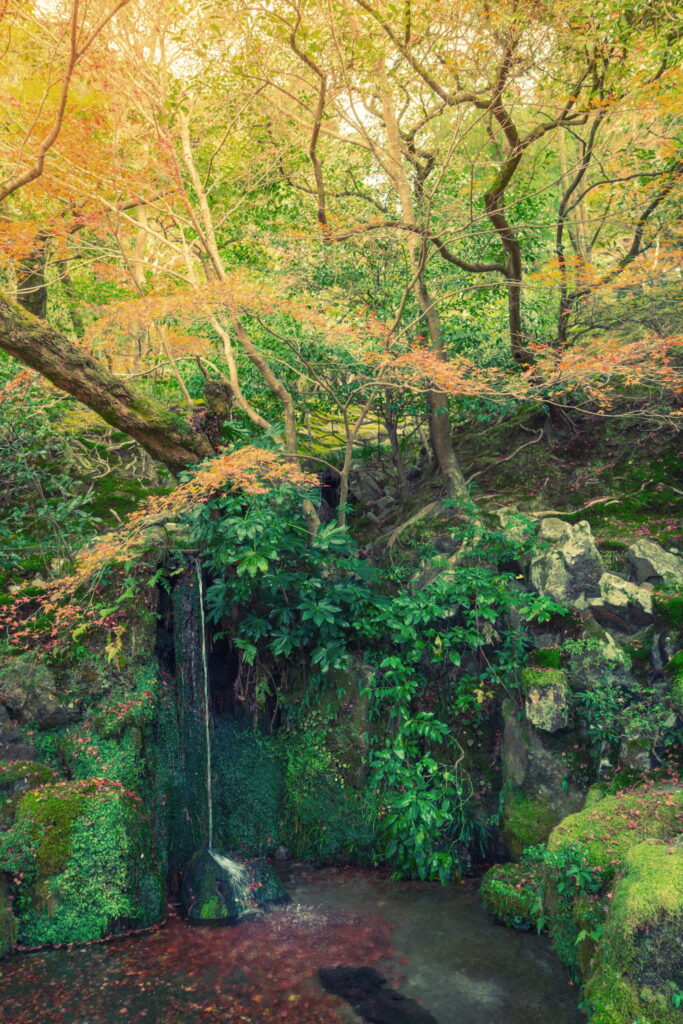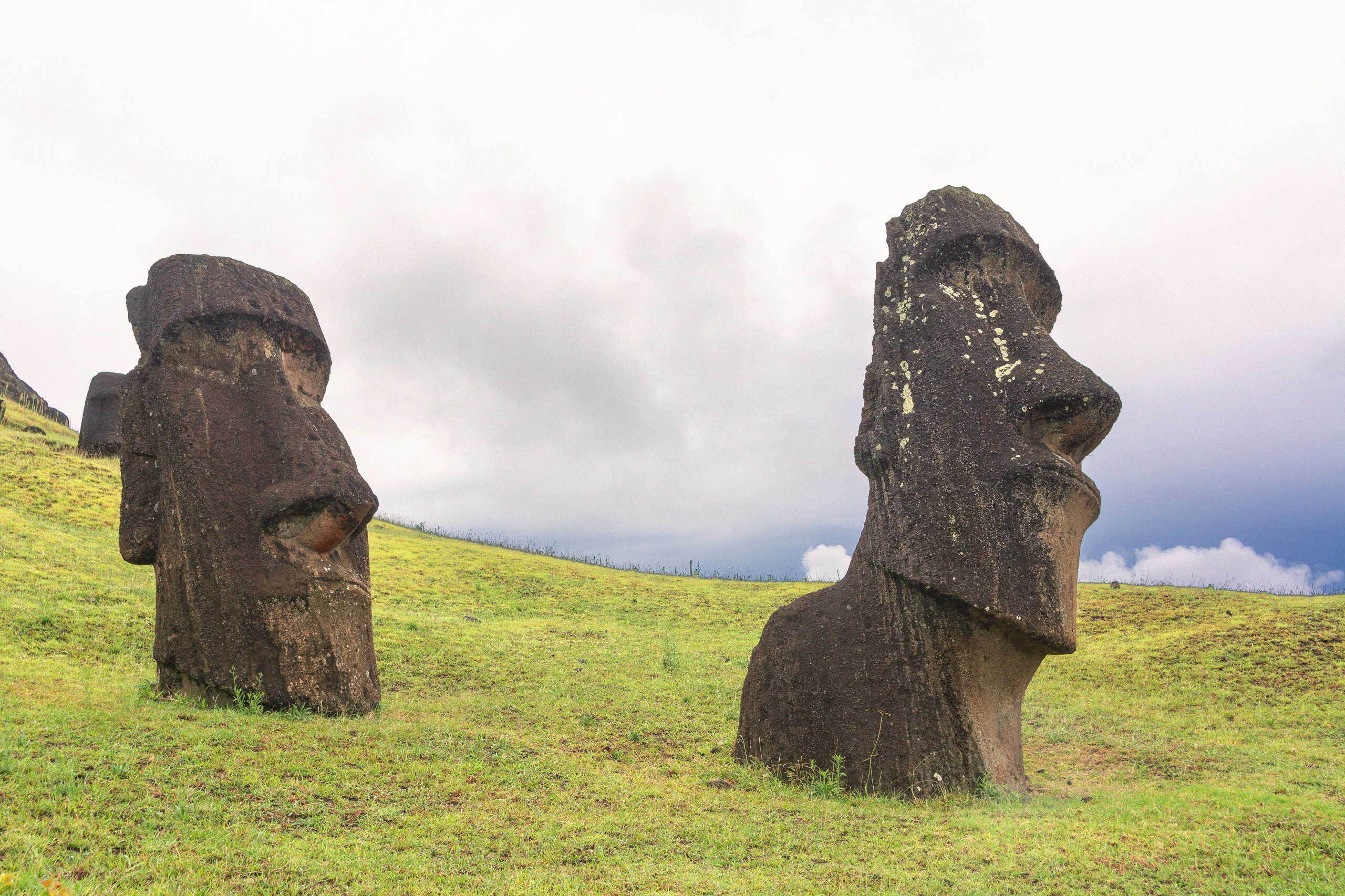Buckle up, eco-history buffs!
We’re journeying to Easter Island, a paradise with a dark secret.
Imagine swaying palm trees and vibrant coral reefs teeming with life, a sense of peace washing over you.
This idyllic scene wasn’t always a dream vacation spot; it was Easter Island before its tragic downfall.
This once-thriving civilization is a stark reminder that our future hinges on how we treat the environment.

Why Does This Matter?
Extinction is a habit we humans keep repeating.
Throughout history, mighty empires like the Sumerians, Greeks, and Romans have crumbled, facing a common enemy: a self-inflicted shortage of resources.
Like the Easter Islanders who chopped down the trees they needed for survival, these civilizations depleted their forests, poisoned their land, and choked off their water supplies.
The story of Easter Island is particularly chilling.
The first inhabitants, arriving around 1,500 years ago, initially thrived.
They hunted, fished, and built impressive monuments using resources from their island home.
But their success proved unsustainable.
The towering palm trees that provided wood for canoes and construction were mercilessly cut down.
This deforestation triggered a domino effect – soil erosion washed away, streams dried up, and the once-abundant wildlife vanished.
With their traditional food sources gone, the islanders turned to more destructive practices.
They overfished the surrounding waters and even resorted to cannibalism.
This frenzy of resource depletion caused their population to plummet from an estimated 10,000 at its peak to a mere 2,000 by the time Europeans arrived in the 18th century.
Easter Island isn’t an isolated incident.
Other Pacific islands share similar tales of environmental devastation and social collapse.
But there’s a crucial difference.
Polynesian societies on some islands also faced initial environmental degradation.
However, unlike Easter Island, they made “conscious choices” (as documented by archaeologist Patrick Kirch) to ensure their long-term survival.
These choices, though difficult, included restrictions on animal agriculture – a significant contributor to deforestation – and even population control measures.

What Can We Learn From These Cautionary Tales?
Here are two key takeaways:
- Knowledge isn’t enough: We, like the Easter Islanders, have enough scientific knowledge to understand the consequences of our actions. We know deforestation and unsustainable practices lead to disaster. Yet, we often fail to translate that knowledge into actionable change.
- Social Change is Key: The solution lies not just in science but also in our social structures. We need institutions and policies that promote sustainable living and discourage destructive practices. More importantly, we need a collective awakening – a recognition of our global impact and a willingness to act for the betterment of the planet.
The Future Is Not Set In Stone
Unlike the Easter Islanders, who have dwindling resources, we have a chance to rewrite our story.
We can chart a course toward a sustainable future by adopting a more “green” lifestyle – embracing renewable energy, reducing waste, and respecting the environment.
Let’s learn from past mistakes and ensure our story has a happy ending, not a tragic one.
Kind reminder: Here are some simple steps you can take to live a greener life:
- Reduce your reliance on single-use plastics.
- Choose eco-friendly cleaning products.
- Conserve water and energy at home.
- Support companies committed to sustainability.
- Spread awareness about environmental issues.
Remember, every small action adds up.
Together, we can create a healthier planet for ourselves and future generations.
Disclaimer
- Het is alleen bedoeld voor algemene informatieve doeleinden: De informatie op de website en app van BioKissed, inclusief maar niet beperkt tot zakelijke mogelijkheden, voedingstips, tips voor een gezonde levensstijl, praktijkartikelen voor een gezonde levensstijl, voedende recepten en wellnessartikelen (hierna gezamenlijk aangeduid als “Content”), is uitsluitend bedoeld voor algemene informatieve doeleinden. De Inhoud is niet bedoeld als vervanging van professioneel zakelijk advies, medisch advies, diagnose of behandeling.
- Het is uitsluitend op eigen risico: BioKissed beveelt geen specifieke tests, artsen, producten, procedures, meningen of andere informatie aan die mogelijk op de website of app worden vermeld. Vertrouwen op enige informatie verstrekt door BioKissed, haar werknemers, gecontracteerde schrijvers, of anderen die op uitnodiging van BioKissed op de website of app verschijnen is uitsluitend op eigen risico.
- BioKissed onderschrijft of keurt geen standpunten in de Content goed: BioKissed staat niet in voor de juistheid, volledigheid of bruikbaarheid van de Content, noch onderschrijft zij de standpunten die in de Content worden geuit. De opname van Content op BioKissed’s website of app impliceert geen goedkeuring van dergelijke Content.
- U neemt vrijwillig al deze risico’s op u: Voordat u deelneemt aan een uitdaging, uw levensstijl aanzienlijk aanpast, uw eetgewoonten wijzigt of deelneemt aan aanverwante activiteiten, is het raadzaam om uw persoonlijke gezondheid en conditie te beoordelen. BioKissed wijst uitdrukkelijk verantwoordelijkheid af voor de stoffen die individuen kiezen te consumeren, en het bedrijf is niet aansprakelijk voor eventuele gevolgen, met inbegrip van die met betrekking tot voedselallergieën, als gevolg van dergelijke keuzes. Door te kiezen voor deelname aan een uitdaging, erkent u en gaat u ermee akkoord dat dergelijke activiteiten inherente risico’s met zich meebrengen, en u neemt vrijwillig al deze risico’s op u, zelfs als deze voortvloeien uit de nalatigheid van BioKissed, aan haar gelieerde bedrijven of haar leden.
- BioKissed en haar contentaanbieders wijzen elke verantwoordelijkheid of aansprakelijkheid voor gevolgen af: BioKissed en haar contentaanbieders aanvaarden geen verantwoordelijkheid of aansprakelijkheid voor enig gevolg dat direct of indirect verband houdt met enig handelen of nalaten dat u doet op basis van de informatie die u vindt op of via de website of app van BioKissed.
- Meer lezen
